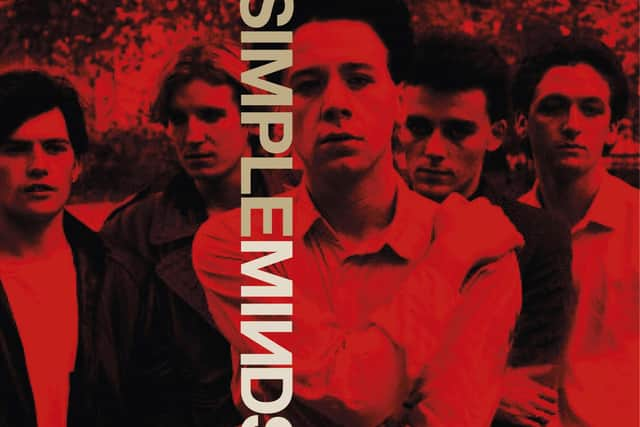Book review: Themes for Great Cities: A New History of Simple Minds, by Graeme Thomson


Like their peers and pals U2, Glaswegian rock behemoths Simple Minds are not generally a band to go to for laughs and larks. For all the widescreen ambition of their music and presentation, there is a sense of personal modesty around the band, a veil drawn across the tensions and antics which pepper conventional rock biography. Or maybe they are just nice, normal, straight arrow kinda guys.
Themes for Great Cities really is (almost) all about the music. With this self-styled New History of Simple Minds, author Graeme Thomson is upfront in his aim to “remystify” a band with a reductive reputation for mainstream pomp and stadium stomp by zeroing in on the prolific pre-hits times, specifically spring 1979 to autumn 1982, a period in which Simple Minds produced the six albums most beloved of connoisseurs and commentators.
Advertisement
Hide AdHailed justifiably as “the first great modernist Scottish band”, Simple Minds were a product of punk but, like Public Image Ltd in London and Magazine in Manchester, quickly expanded their musical horizons, training their eyes and ears on European culture, much of it introduced via adolescent trips to Glasgow’s Citizens Theatre.


The book is at its most interesting when tracing an origins story, as childhood chums Jim Kerr and Charlie Burchill form ragtag punks Johnny & the Self-Abusers, soon to be reborn as “an art school band without the art school”. The moment of epiphany is pithily drawn. Kerr hears the 12-inch version of Donna Summer’s I Feel Love at one of his own gigs and declares “punk’s finished, we have to get a synthesizer”. Little could he know that the drum machine on Giorgio Moroder’s trailblazing production was programmed by Steve Forsey, the man who would go on to write Simple Minds’ most recognisable hit Don’t You (Forget About Me).
Elsewhere, Thomson provides a thoughtful and eloquently expressed form of listeners’ guide, taking deep dives into the track listings of those early albums, from the feet-finding Life In A Day via the audacious Empires and Dance to the breakthrough New Gold Dream. Primal Scream frontman Bobby Gillespie, Manic Street Preacher James Dean Bradfield and Iain Cook of Chvrches all have their favourite and are invited to wax lyrical in interchapters, with Bradfield in particular penning a lyrical tribute to how Empires and Dance helped him to stop worrying and love pretension (“it was almost like learning a new language”).
In the end, Thomson follows Simple Minds all the way from the Mars Bar in Glasgow to Milton Keynes Bowl, up and over their creative peak to their commercial apex when his analysis and appreciation of the music is less intense and forensic, and more generally generous. Maybe it’s just better to I Travel than to arrive.
Themes for Great Cities: A New History of Simple Minds by Graeme Thomson, Constable, £20
A message from the Editor:
Thank you for reading this article. We're more reliant on your support than ever as the shift in consumer habits brought about by coronavirus impacts our advertisers.
If you haven't already, please consider supporting our trusted, fact-checked journalism by taking out a digital subscription at https://www.scotsman.com/subscriptions